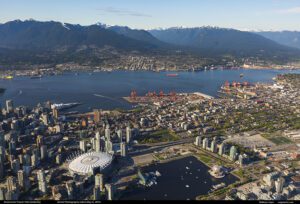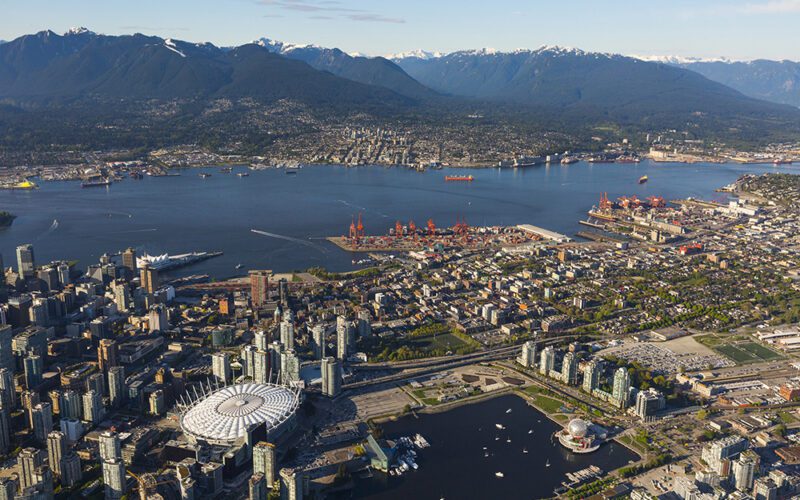
Mid-year statistics that were released by the Vancouver Fraser Port Authority on Sept. 22 show that overall cargo volumes at the Port of Vancouver have declined 11% to 68.3 million metric tons.
That’s compared to 76.4 million metric tons over the same period last year.
The drop, according to the port authority, reflects the impacts of a poor Canadian grain harvest, congestion caused by 2021 flooding in British Columbia and global and national supply-chain challenges.
“As global ports continue to face an array of supply-chain challenges, Vancouver’s port community has met the complex and layered challenges of early 2022 with resourcefulness and tenacity,” commented Robin Silvester, president and CEO of the port authority, the federal agency that oversees trade through the Port of Vancouver.
In recent years, the port’s grain sector, including both bulk and containerized grain, has shown strong growth, achieving new records for total grain shipped every year from 2013 to 2020. Volumes remained relatively stable in 2021, despite supply chain disruption from wildfires and flooding last year, as well as reduced harvest volumes due to drought in the prairies.
For the first half of 2022, however, overall grain volumes decreased by 60% over the same period last year due to the poor Canadian harvest in 2021, plus a sell-off of grain stores last year in response to high prices. Similarly, canola oil decreased by 62% through mid-year, due to the low yield.
“Grain has been a major growth story for this port for nearly a decade, and while we’ve been seeing impacts of the 2021 harvest this year, we expect to see volumes returning as of this fall, based on industry projections of a stronger 2022 harvest,” Silvester said.
Also, during the first half of the year, sulfur exports increased by 20% due to higher overseas demand. And due in part to the rebound of travel, aviation and jet fuel shipments increased by 179%. Potash increased by 1% as a result of increased global demand due to restricted market access to Russian and Belarussian potash.
Additionally, auto volumes fell 20%. The port authority cited the cause as disrupted global semiconductor production and supply-chain issues, coupled with softening demand.
Although Canadian consumer demand for containerized goods remained high, container volumes were down by 7% at mid-year, reflecting impacts from supply-chain disruption related to the B.C. flooding, as well as challenges caused by at-capacity warehouses at inland terminals such as Toronto, which have affected trade through Vancouver.
Canada’s West Coast container trade remains on a positive long-term trajectory, according to the port authority, averaging 5% growth annually for the past decade. West Coast terminals are projected to reach capacity by the mid- to late-2020s.
To meet Canada’s coming capacity needs for containerized trade, the port authority is leading the Roberts Bank Terminal 2 Project, a proposed marine container terminal in Delta, B.C. The project is in the final stages of a federal environmental assessment process. If approved, the terminal will be a critical link for Canada’s supply chains, increasing container terminal capacity by more than 30% on Canada’s West Coast.
“If we consider our short- and long-term challenges at Canada’s largest port, the solutions are in fact the same,” Silvester said. “To provide resiliency in the face of supply-chain disruptions and to be able to support long-term growth from a position of strength, we need to continue building capacity, efficiency and resiliency throughout the port and its supply chains. Roberts Bank Terminal 2 is an essential part of that.”
Port authority data also show that after a two-year hiatus due to pandemic restrictions, 119 cruise ships called at Canada Place cruise terminal at the Port of Vancouver during the first half of the year. That’s a 10% increase in ship calls over the same period in 2019.
Cruising in Vancouver and in Canada restarted this past spring.
“Seeing the first cruise ship in two years sail under the Lions’ Gate Bridge this past April was quite emotional for the port community—and I think Vancouverites, too,” Silvester said.

